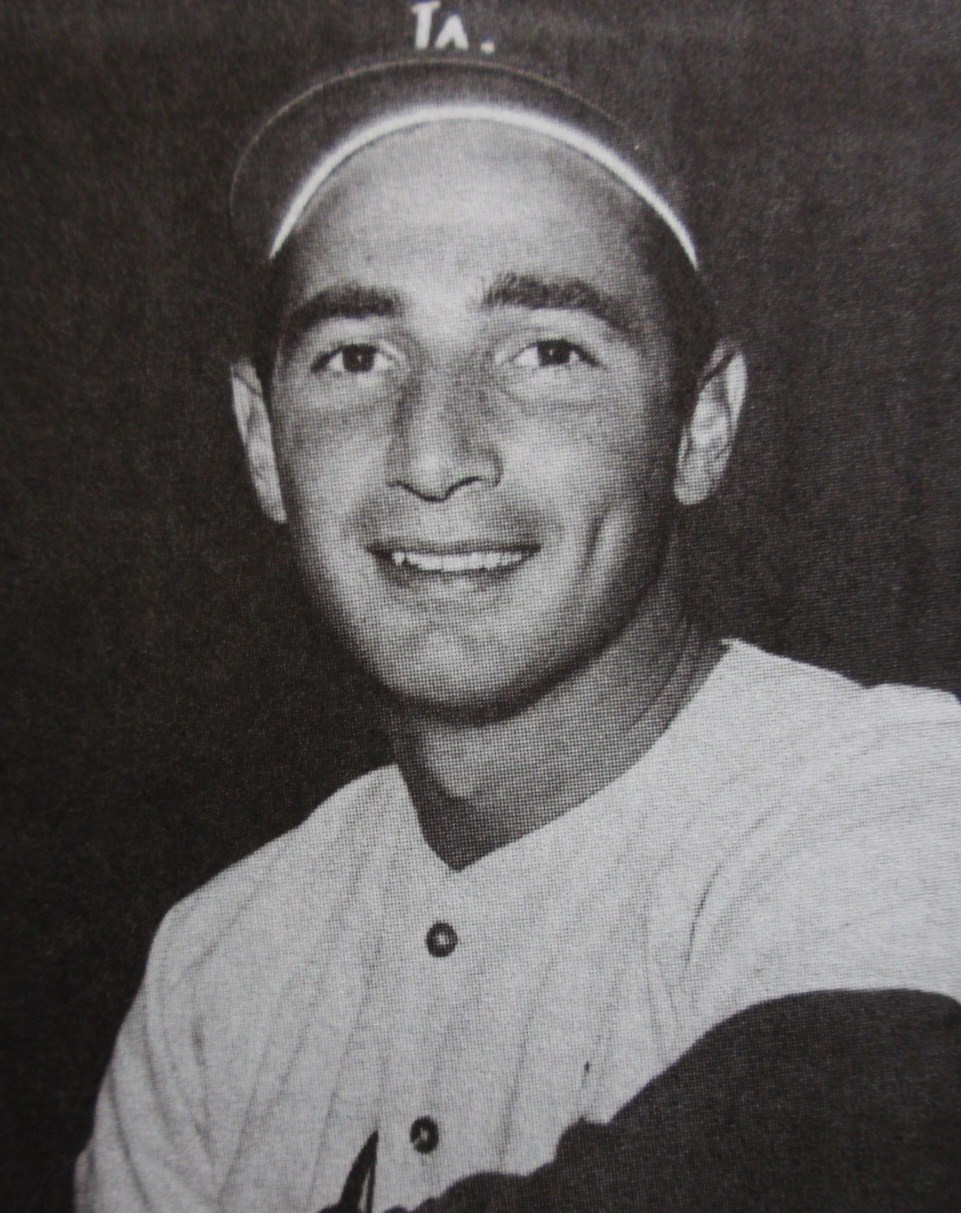As quoted in Total Baseball : The Official Encyclopedia of Major League Baseball (2001) by John Thorn, p. 2468
Contexto: In the end it all comes down to talent. You can talk all you want about intangibles, I just don't know what that means. Talent makes winners, not intangibles. Can nice guys win? Sure, nice guys can win — if they're nice guys with a lot of talent. Nice guys with a little talent finish fourth, and nice guys with no talent finish last.
Sandy Koufax: Frases en inglés
1966 press conference announcing retirement, as quoted by UPI, in "Sandy Koufax Announces Retirement from Baseball at News Meeting" https://newspaperarchive.com/pittsfield-berkshire-eagle-nov-19-1966-p-30/ by Alex Kahn (UPI), in The Pittsfield Berkshire Eagle (November 19, 1966)
Contexto: I don't regret one minute of the twelve years I've spent in baseball, but I could regret one season too many. [... ] I've got a lot of years to live after baseball and I would like to live them with complete use of my body.
Excerpts from 1966 press conference, in Baseball: 8th Inning – A Whole New Ballgame https://www.youtube.com/watch?v=1ouIk6RvUl8 (1994) by Ken Burns, Geoffrey C. Ward
Contexto: I don’t know if cortisone is good for you or not. But to take a shot every other ball game is more than I wanted to do and to walk around with a constant upset stomach because of the pills and to be high half the time during a ball game because you’re taking painkillers … I don’t want to have to do that [... ] I don't regret one minute of the last 12 years but I think I would regret the one year that was too many.
“The only time I really try for a strikeout is when I'm in a jam.”
As quoted by Jack Orr in My Greatest Day in Baseball, and Baseball's Greatest Quotations : An Illustrated Treasury (2008) by Paul Dickson, p. 302
Contexto: The only time I really try for a strikeout is when I'm in a jam. If the bases are loaded with none out, for example, then I'll go for a strikeout. But most of the time I try to throw to spots. I try to get them to pop up or ground out. On a strikeout I might have to throw five or six pitches, sometimes more if there are foul-offs. That tires me. So I just try to get outs. That's what counts — outs. You win with outs, not strikeouts.
“A guy that throws what he intends to throw, that's the definition of a good pitcher.”
As quoted in 22 Success Lessons from Baseball (2003) by Ron White, p. 43
As quoted in "Koufax Still a Champion" by Les Biederman, in The Pittsburgh Press (May 8, 1967)
As quoted in "Koufax" https://www.washingtonpost.com/archive/politics/1979/03/21/koufax/3139f66f-996a-485f-8cce-8f7671152136/?utm_term=.174cfc71ede2) by Thomas Boswell, in The Washington Post (March 21, 1979)
“Show me a guy who can't pitch inside and I'll show you a loser.”
Fuente: As quoted in "One Hard Way to Make a Living" https://www.newyorker.com/magazine/1981/05/04/one-hard-way-to-make-a-living by Roger Angell, in The New Yorker (May 4, 1981), p. 96; reprinted in Late Innings (1982) by Roger Angell, p. 358
“Pitching is the art of instilling fear.”
As quoted in Involvements : One Journalist's Place in the World (1984) by Colman McCarthy, p. 243
“You've got to be lucky to pitch a no-hitter, and if you have good stuff, it's easier to be lucky.”
Speaking on July 1, 1990, at Chavez Ravine, in reference to a no-hitter thrown there just two days before by the Dodgers' Fernando Valuenzela (and, coincidentally, just hours before the Yankees' Andy Hawkins would, thanks to three 8th-inning Bomber miscues, famously record a 4-0, complete-game loss to Chicago, despite giving up no hits ); as quoted in "Notes on a Scorecard" https://www.latimes.com/archives/la-xpm-1990-07-02-sp-474-story.html by Allan Malamud, in The Los Angeles Times (July 2, 1990)
As quoted in "Stuart's Problem; Suppose Sandy Had Become a Boxer" by Sid Ziff, in The Los Angeles Times (July 7, 1966)
“People who write about spring training not being necessary have never tried to throw a baseball.”
As quoted in "Sandy Began Slowly and Then Got Worse; At Tired Arm Stage" by Charles Maher, in The Los Angeles Times (April 14, 1966)
As quote in "Quote... : Father knows best; Soviet hindsight; Life in the NBA: Koufax strategy," The Christian Science Monitor (June 24, 1976), p. 11
